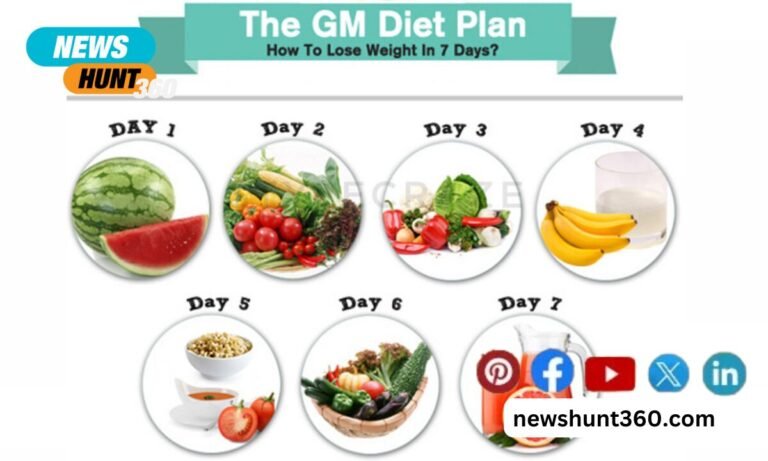Glutathione is an antioxidant that can be found in many foods, including cruciferous vegetables and whey protein. It plays a major role in protecting cells from damage caused by free radicals.
Glutathione benefits for health include protection against cancer, liver disease, and more. Without glutathione, the body cannot perform many of its functions.
Learn more about how glutathione benefits the body and what you should eat to help boost its levels!
Whenever you’re ready to learn about this important antioxidant, keep reading.
Contents
What Is Glutathione?
Glutathione is an antioxidant that is naturally found in the body.
This chemical plays a major role in protecting cells, tissues, and organs from damage caused by free radicals—unstable oxygen molecules with unpaired electrons that can cause DNA mutations if they do not bind to other molecules or ions before reacting with nearby cellular structures.
Glutathione benefits for health include protection against cancer, liver disease, and more. Furthermore, glutathione benefits the body by helping to reduce inflammation. It also regulates cellular detoxification.
Glutathione is good for:
- Healthy immune function
- Reduced risk of cancer, including breast, colon, prostate, and lung cancers
- Protection against liver disease, including hepatitis B or C
- protection against cirrhosis caused by alcoholism
- protection against nonalcoholic fatty liver diseases such as NASH
- Eye health protection from macular degeneration, which may lead to blindness in seniors
These are just some examples of what glutathione is good for. By no means is this an exhaustive list.
Forms of Glutathione
Glutathione is a vital element in the human body. But it can be difficult to produce enough of this key antioxidant.
Luckily, many foods and herbs help naturally boost glutathione levels.
Cruciferous vegetables, such as broccoli, contain sulfur molecules. They help increase your natural glutathione via diet.
Allium vegetables, like garlic or onions, also provide sulfur compounds. They come with their benefits for boosting immunity against diseases.
At the same time, nuts have been shown to protect against neurological disorders when eaten regularly.
Eggs, legumes (like beans), lean protein sources like fish and chicken, along with milk thistle extract. All of this helps increase the levels of glutathione in your body.
Glutathione Benefits & How to Increase Levels
To increase the level of glutathiones, you can:
- Increase your consumption of glutamic acid found in protein sources like meat products and whole grains
- Consume foods rich in sulfur (e.g., eggs, garlic, onions)
- Consume foods rich in cysteine (e.g., whey protein powder and eggs)
- Consume foods high in vitamin C (e.g., oranges, strawberries, and cauliflower)
- Consume foods high in vitamin B complex (e.g., whole grains, salmon)
In terms of benefits, glutathione offers quite a bit. This list is not exhaustive. But it certainly covers the wide variety of possibilities of this compound.
Oxidative Stress
Oxidative stress is a dangerous imbalance in the body. It has been linked to various diseases.
The most common way this occurs is when there are too many free radicals and not enough antioxidants. This leads to diabetes, cancer, or rheumatoid arthritis.
Glutathione fights off oxidative stress by neutralizing these harmful cells. It may even prevent the disease from occurring altogether! Oxidative stress takes form in a variety of ways and its long-term effects are not wished for.
Furthermore, it’s quite difficult to detect without any special medical intervention. Oftentimes, people will never know about the degree to which this damage has occurred.
Cell Damage In Liver
The liver is a miraculous organ that not only filters toxins from the body but also has an astonishing ability to regenerate. A study of 20 patients who had undergone successful liver transplants found that after 5 years, they were able to resume normal life and all laboratory tests showed no signs of cirrhosis or hepatitis B infection.
The human body possesses amazing abilities in its self-regeneration. This can take five forms:
- cell division (mitotic regeneration)
- cytokinesis without mitosis (a type of non-cellular reproduction)
- cell differentiation
- differentiation
- morphological plasticity/regulation at the tissue level
A deficiency in antioxidants, including glutathione, can lead to fatty liver disease. Glutathione has been shown to improve enzyme and bilirubin levels. Specifically in cases with alcoholic or nonalcoholic chronic fatty liver disease.
Those with alcoholic and nonalcoholic chronic fatty liver disease have found a way to improve. This is done by taking glutathione.
This leads to an improvement in protein, enzyme, and bilirubin levels. The latter is often attributed as the cause of this type of liver damage. Liver damage is no joke, and if something can provide assistance to its regeneration, so be it.
Insulin Resistance
Scientists have found out that the more people age, the less glutathione they produce. So researchers used a combination of animal and human studies to explore the role of this substance. Specifically in weight management and insulin resistance among older individuals.
Study findings indicated that low levels were associated with lower rates of fat burning. In comparison, higher rates lead to an increase in storing body fats. This is not ideal for long-term health implications like cardiovascular disease.
But luckily enough, scientists discovered how dietary supplements could maintain a healthy lifestyle. This is by increasing cysteine and glycine among subjects who lacked it naturally.
Within two weeks, an increased production rate led to healthier outcomes. This includes improved metabolism and insulin resistance. This can be a game-changer for individuals who have a hard time losing weight.
Mobility In Artery Disease
Peripheral artery disease is a condition that impacts the peripheral arteries. When they become clogged with plaque, it can lead to pain and discomfort in walking for long distances or even short ones!
There are various treatments on offer, including medication such as aspirin. But an alternative treatment is glutathione. It has been shown to improve circulation through participating individuals’ legs.
Participants were given intravenous infusions twice daily for five days before analysis. They found those receiving glutathione had increased ability over time. This is true when compared to saline placebo recipients.
Both groups showed improvement. Although participants taking glutathione did show more progress than their counterparts. This means there’s hope yet of bettering your quality of life without surgery!
Parkinson’s Disease
Parkinson’s disease is a neurological disorder that affects the body and mind in various ways. Symptoms can range from mild tremors to rigidity, but it has yet to develop a cure for this debilitating condition.
One study documented intravenous glutathione’s positive effects on Parkinson’s symptoms. While more research needs to be done with larger samples, one case report suggests getting your dose of glutathione. It may help reduce these troubling side effects so you can enjoy life again without worry.
Autoimmune Disease
It has been discovered that oxidative stress can be caused by autoimmune diseases. For instance, rheumatoid arthritis, celiac disease, and lupus.
These attacks on mitochondria in cells are where glutathione protects from free radicals. This occurs with either stimulating or reducing immunological response depending on what is needed at the time.
Autoimmune disorders are often hard to detect by mere symptoms. Thus, it’s greatly recommended that if one suspects it, they must visit a doctor.
Autism
In recent research children with autism have higher oxidative damage. They also have lower glutathione levels in their brains.
This increased susceptibility to neurological damage is due to mercury. It is found in many common household products like sunscreens or cosmetics.
Children in the study showed improvements after oral or transdermal glutathione for eight weeks.
However, these results were not conclusive enough. This is because autistic symptom changes were not evaluated during the trial period.
Uncontrolled Diabetes
After only two weeks, the study participants with high sugar levels could lower their oxidative stress and increase glutathione. This antioxidant is crucial for protecting cells against damage by reactive oxygen species (ROS).
The program was a dietary supplement in which people consumed 0.81 millimoles per kilogram of cysteine every day and 1.33 mmol/kg glycine daily for 14 days total—that’s about one-sixth of an ounce. Each time or less than three grams over the course of fourteen days!
Glutathione plays an important role within our cell walls and outside them. That is where it protects us from infection while scavenging harmful free radicals.
Respiratory Disease
N-acetylcysteine is a potent medication. It can be used to treat conditions such as asthma and cystic fibrosis.
It does this by thinning mucus. Thus, making it less paste-like while also reducing inflammation. N-acetylcysteine is actually the result of glutathione. It produces more than enough for our bodies’ needs in just one day!
Hence, glutathione can help reduce the many symptoms of respiratory illness.
Can Glutathione Be Supplemented?
Fortunately for many, glutathione can be safely raised by eating various healthy foods. In addition, this is an antioxidant that can be taken in supplement form. This is to support the immune system and protect cells from oxidative stress.
However, it should be noted that while many take supplemental glutathione safely daily. Some people are unable to tolerate even small dosages due to allergic reactions.
Glutathione is a potent antioxidant and widely available for purchase online or in natural-food stores. Glutathione supplements are digested into three peptides (cysteine, glycine, glutamic acid). Therefore, benefits from these oral supplements may be due primarily thanks to cysteine.
Several clinical studies have shown that increased glutathione production through direct administration and promotion with precursors (such as NAC) has been found clinically helpful in the following conditions:
- Parkinson’s
- cystic fibrosis
- emphysema
- COPD
- lead exposure
- nonalcoholic fatty liver disease
- Exercise-induced fatigue is another condition that can be helped by taking more glutathione.
These are all chronic conditions for which self-treatment may result in serious consequences. Consult a physician before beginning your supplement regime.
Glutathione Dosage
In the past, many have looked to glutathione as a natural and effective way that can help prevent symptoms of aging. However, research has found that there is insufficient scientific evidence. Specifically in relation to determining proper dosing when taking this supplement.
Still, some suggest NAC may be more effective in treating specific conditions due to its antioxidant properties.
There are various doses studied throughout research investigating medical issues. However, it depends on age, gender, and health history. These will ultimately dictate how much you should take at once per day.
For those looking for a more holistic approach to health, glutathione stands out. It is one of the most powerful natural compounds that can be administered. It is used in different ways, such as injecting it into your veins or using nebulizers.
People may not know about these options. This is because they typically do not discuss them with doctors unless necessary.
There have been no clinical trials on using it intravenously yet. This is due to its side effects like headache, nausea, and hypotension when given this way. This makes people want to avoid being injected with IVs at all costs!
A recommended dosage for glutathione is 200mg at a time per day. This is only for those who want to use it as an antioxidant. However, for therapeutic purposes, the feeling will ultimately dictate how much to take.
Science Galore
Now you understand the glutathione benefits. Thus, you very well understand why some people call it the miracle antioxidant. Without glutathione, the body cannot regulate many of its important faculties.
In any case, glutathione can be increased safely without much effort. Even simple dietary changes can lead to great benefits.
If you’re interested in learning more about a variety of science topics, feel free to check out some of our other content on the sidebar.




